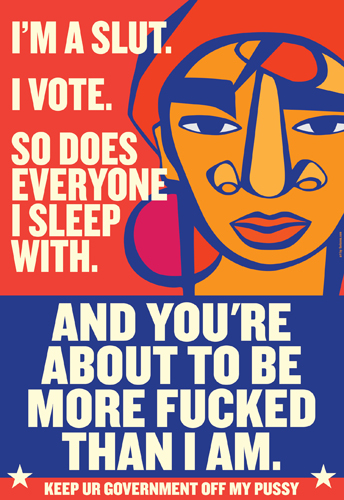The Ice Cream Follies: PECAN RESIST!
Yes, this is a turning point. President Trump is finished. The walls are closing in. Impeachment is just around the corner. No, I’m not ranting about the results of special counsel Robert Mueller’s Russian collusion investigation, I’m talking about Ben & Jerry’s new ice cream flavor… Pecan Resist. No, I’m not kidding.
Believe it or not, Ben & Jerry’s launched Pecan Resist on October 30, 2018, in the First Amendment Room of the National Press Club in Washington, D.C. That apparently is what the National Press Club thinks the First Amendment is for—marketing and product placement. That’s the first lesson of the ice cream follies.

The second lesson is that everything in the Trump era has become politicized, even a frozen dessert. At the National Press Club, Ben & Jerry’s let all consumers know that their Pecan Resist flavor will help “lick injustice and champion those fighting to create a more just and equitable nation for us all.” Good grief, this essentially means that “Pecan Resist” equals “We Can Resist.”
Just in case you missed the point, Ben & Jerry’s clarified their marketing campaign: “The company cannot be silent in the face of President Trump’s policies that attack and attempt to roll back decades of progress on racial and gender equity, climate change, LGBTQ rights and refugee and immigrant rights – all issues that have been at the core of the company’s social mission for 40 years.” So buy our ice cream, it’s for the revolution, don’t cha know.

But why am I writing about ice cream, and what does any of this have to do with art? Because, as the Press Release from Ben & Jerry’s notes; “The Pecan Resist campaign graphics and pint design were developed by Bay Area artist and activist Favianna Rodriguez.” In the Press Release for Pecan Resist, Rodriguez made the following statement:
“As an artist, I know well the power of culture and I recognize when a business is using its platform to push for love, justice and a green planet. Let’s declare our resistance, march in the streets, and elect a new generation of change makers.”
Hmm, I remember a time when the left would NEVER have collaborated with a multinational corporation, let alone take its money. That would have made one complicit with monopoly capitalism. But now that the left has changed its rulebook by throwing the white working class under the bus, they might as well violate their rules against teaming up with huge and powerful corporations.
Here’s a surprise for Ms. Rodriguez, there is no Ben & Jerry’s. It’s a fully owned subsidiary of the British-Dutch transnational corporation, Unilever. The largest consumer goods company in the world, it owns over 400 brands and has assets that totaled $70.278 billion in 2017. Ben Cohen and Jerry Greenfield founded their ice cream company in 1978, but their business became just another corporate acquisition for Unilever, which purchased the company in 2000.
The products still say “Ben & Jerry’s,” but Cohen and Greenfield do not hold board or management positions in the Unilever Ben & Jerry’s. In a 2017 interview, Greenfield described their current role in Ben & Jerry’s: “We have no responsibility, no authority, and very little influence.” The New York Times in 2000 reported that Unilever acquired Ben & Jerry’s for around $326 million in cash.
On October 23, 2018, Reuters reported that the Unilever Ben & Jerry’s spent lots of money buying ads on Facebook ahead of the Nov. 6, 2018 midterm elections in the U.S. According to Reuters, the company “spent more than $401,000 since May on various ads, including one supporting a Florida ballot measure that would let felons vote” (incidentally, that ballot measure won). Wow… that could inspire a brand new Ben & Jerry’s flavor. Two scoops of “Felons Truffle Kerfuffle” anyone? Or maybe “Faux Russian Collusion Cookie Core” would be more fitting?

It seems like a million years ago, but on Saturday, July 28th, 2007, I spoke at an artist’s forum with Favianna Rodriguez that celebrated the official Los Angeles debut of the newly published art book, Yo! What Happened to Peace? The book was a collection of hand-made prints created by over 120 artists in opposition to the U.S. invasion and occupation of Iraq—it included works by Rodriguez and yours truly. The forum, held at the Continental Gallery in downtown Los Angeles, was a lively evening of art, music and dialogue well attended by over 500 people.
Since then Ms. Rodriguez has made quite a name for herself in the Oakland Bay Area and beyond. Her colorful graphic print works offer a decidedly left-wing feminist view on the issues of immigration, gender, economic inequality, LGBTQ rights, and climate change—all with a laser focus on women of color. Ms. Rodriguez, to put it mildly, has ardently embraced identity politics. Thus, her works have brought her acclaim and celebrity from like-minded people. Obviously her works were favored by Unilever.
Altogether now, let’s recite the following in our best Borg Collective drone voice, “You will be assimilated—resistance is futile.”

‘Scuse me while this cisgendered lug does some art-splaining. I began to question the political approach of Rodriguez when she printed a series of militant silkscreen prints promoting women’s rights. On June 8, 2012 Ms. Rodriguez announced that these posters would be available as free downloads so that they could be “shared far and wide.” She called her suite of prints, the “pussy-power, poontang-celebrating, patriarchy-defeating, slut-positive posters.”
Mind you, having created a fair amount of provocative art myself, I appreciate the role of angry aesthetics, and I’m most certainly in favor of advancing women’s rights. However, these particular posters by Rodriguez utterly fail as visual arguments in favor of a noble cause. They will undoubtably appeal to small circles of seasoned radical feminists, but their surly, confrontational nature will send everyone else running. It should be obvious to most people that the great majority of American women will not appreciate being called a slut.

Furthermore, rather than offering a rational, persuasive argument to men, the artist resorts to abuse and invective. Calling men “Misogynist, Crusty, F**k Heads” will not garner their support—but it will most definitely turn them away. In other words, these posters comprise a monumental propaganda disaster. Conservatives will point at the “slut” themed posters and rightly say “that’s today’s left,” and they won’t even have to bother parodying the posters.
The same can also be said for the Pecan Resist package design. Normal people associate ice cream with fun, parties, festive occasions, and the like. But these days it seems “no fun” has become the mantra of a stern, stridently politically correct, and very humorless left.
With Pecan Resist you are transported to a street protest where three angry looking women are scowling, most likely because you’re not carrying a “F**k Trump” placard. The outraged “sisters” are presumably shouting “Hey Hey, Ho Ho, (insert grievance here), Has Got To Go!” Unilever even created an animated ad using the Pecan Resist art (yes, there’s a YouTube campaign), presenting one of the cartoon women breathing fire—along with stock footage of marching irate protestors. Ah, such joy, it just makes you want to eat ice cream, doesn’t it?
But “inclusivity” only goes so far—sorry vegans, there isn’t a non-dairy Pecan Resist. And as for “intersectionality” being the tool that guides the pseudo-politics of a faddish left, ponder the following. What can be said about the brilliant minds behind the Pecan Resist marketing campaign who are totally ignorant of the fact that up to 75% of African Americans and Native Americans, and 90% of Asian Americans, are lactose intolerant? And these geniuses want to combat racism.
Not surprisingly, the Pecan Resist video isn’t doing so well. On the day of its Oct. 30, 2018 launch, it received hundreds of negative comments, so many in fact that Unilever was forced to disable comments altogether in order to avoid embarrassment. I did manage to jot down a few barbs before they disappeared; “You couldn’t resist the urge to lose business, could you” and “Politics in ice cream? Get woke, go broke” pretty much summed up the feedback.
There were 14 up-votes and a whopping 952 down-votes registered when the company disabled comments. But wait, it gets even better. On the official Ben & Jerry’s website product page for Pecan Resist, the “Ratings & Reviews” section was removed. That section existed for every other flavor at the bottom of each page, and it’s where customers left extensive comments and rated their favorite flavor. Oh well, “This Is What Democracy Looks Like!” Then, Pecan Resist was removed altogether, and placed on the “Top 10 Most Rebellious Ben & Jerry’s Flavors” page, where comments couldn’t be made.
Another new Ben & Jerry’s flavor could very well be, “Culture Wars Cheesecake Cataclysm.”
Ms. Rodriguez’ twitter announcement about her art gracing Ben & Jerry’s latest product didn’t fare any better; many of the comments were pretty icy: “it’s only 1/1024th cocoa but identifies as chocolate” and “Ah yes, using the political climate to promote your personal capitalism. Amazingly capitalist regime of you” were typical retorts. But then there were the truly injurious snubs, like “You went to the Jim Carey (sic) school of art I see.”
In its Press Release for the launch of Pecan Resist, the Unilever Ben & Jerry’s announced that it was donating $25,000 each to four groups “focused on freedom, belonging, community, and justice.” One of those groups is the Women’s March, described as having a commitment to “harnessing the political power of diverse women.” In fact the Press Release features a group photo that includes artist Favianna Rodriquez standing next to the co-chair of the Women’s March, the Palestinian-American-Muslim Linda Sarsour.
To say that Linda Sarsour is a lightning rod of controversy would be an understatement. In 2011 she tweeted that “sharia law is reasonable and once u (sic) read into the details it makes a lot of sense.” That may be so for the patriarchal Islamic extremists who use sharia to oppress women, but this is coming from an activist who supposedly defends women’s rights.
The political and economic support given to the Women’s March by Ben & Jerry’s has raised the hackles of many. Even the rabidly anti-Trump New York Post ran an article titled; “Don’t join this year’s Women’s March unless you’re good with anti-Semitism.”
The progressive Huffington Post is also known as a Trump hating platform, but HuffPo published a 2016 article titled “As Long As There Is Sharia Law, Women Will Not Have Human Rights.” Written by Indian-American Muslim Deeba Abedi, the essay should make any decent minded person squirm over the atrocities committed by sharia against the basic human rights of women.
Linda Sarsour and fellow Women’s March leaders Tamika Mallory and Carmen Perez, have ties to Louis Farrakhan, the head of the Nation of Islam (NOI). Mr. Farrakhan needs no introduction, he’s a hardened anti-Semite with a very long history of preaching hate against Jews, Whites, and Gays. But then comes his most recent perfidious exploit.
The Mehr News Agency, one of the official news agencies of Iran, reported that Louis Farrakhan visited the country on Nov. 4, 2018 as the Islamic Republic celebrated the 39th anniversary of the 1979 seizure of the U.S. Embassy in Tehran. That’s when, for 444 days, radical Islamists held 50 U.S. diplomates and embassy staff hostage. Farrakhan’s solidarity visit was also timed to protest President Trump’s Nov. 5th renewal of sanctions against the Islamic regime. Farrakhan led an auditorium of law students gathered at the University of Tehran in chants of “Death to America” and “Death to Israel” in Farsi.
In 2015 Mr. Farrakhan invited Sarsour, Mallory, and Perez to participate in the Nation of Islam organized “Justice Or Else” rally in Washington, D.C. Sarsour was a keynote speaker at the gathering. If any of you progressives out there doubt the reactionary nature of Farrakhan, then watch and listen to this video of his speech to a Nation of Islam gathering in 1993. He boasted that the Nation of Islam murdered Malcolm X, saying “we dealt with him the way a nation deals with a traitor.” Since Ms. Rodriguez issued a silkscreen poster of Malcolm X in 2010, perhaps she would considered reissuing the print using the Farrakhan quote?
In September 2018, Linda Sarsour addressed the Islamic Society of North America conference where she lectured Muslim Americans for being “complicit” in the murder of Palestinians. She told her audience they must never “humanize the oppressor,” meaning of course, all Israeli Jews. We know what happens when a people are dehumanized—every crime against them can be justified.
Which brings me to another Women’s March leader, the 69-year-old Palestinian Rasmea Yousef Odeh. She helped organize the Women’s March in the U.S. capital that took place on March 8, 2016 after Trump’s inauguration. Odeh co-wrote “Women of America: we’re going on strike. Join us so Trump will see our power,” an open letter published by The Guardian announcing the protest.
In 1969 Odeh belonged to the Marxist oriented “Popular Front for the Liberation of Palestine” (PFLP). She planted a powerful bomb in an Israeli supermarket that killed two young men shopping for groceries—Leon Kanner, 21, and Eddie Joffe, 22. Nine other people were wounded. Odeh was sentenced to life in prison, but served 10 years before being released in a prisoner exchange. In 1995 she entered the U.S. but failed to tell U.S. authorities she had served a prison sentence for murder and terrorism; she eventually received American citizenship.
When U.S. immigration authorities discovered Odeh’s deliberate deception, she was charged with immigration fraud for lying on her visa and citizenship forms. In March of 2017, she accepted a plea bargain that stripped her of U.S. citizenship. In a final act of “resistance” on U.S. soil, in April of 2017 Odeh was the keynote speaker at the “Jewish Voice for Peace” summit in Chicago. Linda Sarsour shared the stage with Odeh, and said she was “honored and privileged to be here in this space, and honored to be on this stage with Rasmea.” In Sept., 2017, Rasmea Yousef Odeh was deported to Jordan.
Ben & Jerry’s Israel branch announced it has no intention of carrying or selling Pecan Resist. Israelis are incensed over Linda Sarsour’s support for Rasmea Yousef Odeh, and for her and other Women’s March leaders backing Louis Farrakhan. But then, Sarsour said we should never “humanize the oppressor.” For Sarsour and those who think like her, the thoughts of Israeli Jews are entirely irrelevant and never to be considered.
For those in the U.S. who insist that opposition to the Women’s March is driven by conservatives, think again. A major socialist institution in Germany, the Friedrich Ebert Foundation, withdrew their Nov. 12, 2018 presentation of its Human Rights Award to the Women’s March, citing the antisemitism of the women’s organization as the reason. The Friedrich Ebert Foundation (Friedrich Ebert Stiftung or FES), is a German political foundation with ties to the Social Democratic Party (SPD). Founded in 1863, the SPD is one of Germany’s two major political parties; it was one of the first mass organizations in the world to be influenced by Marxism. Founded in 1925 the FES promotes the peaceful transition from capitalism to socialism by electoral means. It has projects in over 100 countries and maintains fraternal ties with the Workers Party of Brazil.
Scholars and alumni of FES wrote an open letter denouncing the Women’s March, with a special focus on Linda Sarsour. The statement in part read: “We believe that the Women’s March USA does not meet the criteria of this award, as its organizers have repeatedly attracted attention through antisemitic statements, the trivialization of antisemitism and the exclusion of Zionists and Jews since Women’s March USA’s establishment in 2017. Women’s March USA does not constitute an inclusive alliance.” As a result the Friedrich Ebert Foundation suspended the award ceremony to “to allow an independent body to investigate the matter.”
Favianna Rodriguez, her benefactors at Unilever Ben & Jerry’s, and all those who think buying Pecan Resist actually constitutes a step towards a better society, should read the declaration composed by the left intellectuals of FES.
I can’t imagine why Ben Cohen and Jerry Greenfield would donate $25,000 to the Women’s March, not with Linda Sarsour at the helm. And I also can’t imagine why Favianna Rodriguez would stand with Sarsour. However, what I CAN imagine is Sarsour, her cohorts in the Islamic Society of North America, and the Palestinian people, responding with open disgust if they were ever to see Rodriguez’ “pussy power, poontang” graphics.
I’ve always maintained that artists should avoid endorsing political parties, candidates, and celebrity figures. Not because I’m a contrarian, but for the reason that I believe art and artists are better off as autonomous observers and critics. For the majority of my career I have strived for artistic and political independence, and I am entirely unencumbered because of that stance.
Conversely, with very few exceptions, when artists lambast individual political figures, they simply provide a distraction from systemic problems; which is to say, artists should battle ideas, not people.
Becoming entangled in political activism also has its pitfalls; nothing kills the spirit of art quicker than blind allegiance to political ideology. But another conundrum faces the political artist; what happens when the political ideal, alliance, or figure you promoted with your art proves to be corrupted? That’s what I think when pondering the fate of Favianna Rodriguez, she now has a millstone around her neck that is engraved with the name, Linda Sarsour.
In the 1960s postmodern thought achieved major inroads into the art world. In no small way Andy Warhol helped engineer the concept-model that contemporary artists follow today, that of business as the one true art. Warhol called it “Business Art,” where the artist is willingly transformed into a commodity to be marketed and sold. According to this purview it was not Warhol’s prints, paintings, and films that had value—they were secondary. It was his carefully constructed and marketed persona that held value. This notion has become one of the highest expressions of capitalist thought in today’s cultural milieu.
It goes without saying that Warhol’s “Business Art” is not the only model an artist can—or should—pursue. Chicano art icon Gilbert “Magú” Luján (1940-2011) knew of a different path. Toward the end of his life he told me that in the past McDonald’s wanted to use his art in advertising campaigns targeting the “Hispanic” community, and that the multinational was willing to pay him a substantial sum for the partnering. Magú firmly turned down the offer, he did not want his name associated with junk food flooding the Latino community. Millennials need to seek out and embrace those who possess this type of integrity… especially those involved in the arts.
What we see in the Ben & Jerry’s ice cream follies is a perfect example of “Business Art,” which bears similarities to “Free Enterprise Painting,” the moniker given to Abstract Expressionism in the 1950s by Nelson Rockefeller. These appellations define art that is dressed in the accouterment of rebellion, but nevertheless serves the interests of powerful elites; in essence I’m talking about the aesthetics and politics of co-optation. “Hope” and “Change” anyone?
Postmodernism conjures up, then appropriates “Resist,” giving us the “equitable tomorrow” of “Pecan Resist,” and all for only $7 a pint. The spectacle commodity society is in full bloom, and comrades, it’s eating you alive. But the last laugh is on those who are assimilated into the system they once struggled against.
– // –
UPDATE: 9/19/2019
On Sept. 16, 2019, the Women’s March announced it was cutting ties with board members Linda Sarsour, Tamika Mallory, and Bob Bland—members accused of anti-Semitism. Sarsour and Mallory had refused to condemn Louis Farrakhan, the anti-Semitic leader of the Nation of Islam. On Sept. 18, 2019, the Women’s March also fired a new board member, Zahra Billoo, just two days after her appointment. Billoo, a Palestinian Muslim, had tweeted the FBI were recruiting “mentally ill young people” as “recruits to join ISIS.” She also said Israeli soldiers were “no better than ISIS.”
UPDATE: 11/27/2018
On November 19, 2018 Teresa Shook, the founder of Women’s March, denounced Linda Sarsour, Tamika Mallory, and Carmen Perez. She accused them of allowing “anti-Semitism, anti- LBGTQIA sentiment and hateful, racist rhetoric to become a part of the platform by their refusal to separate themselves from groups that espouse these racist, hateful beliefs.” Shook asked Sarsour and company to “step down.” Read Shook’s full statement here.


